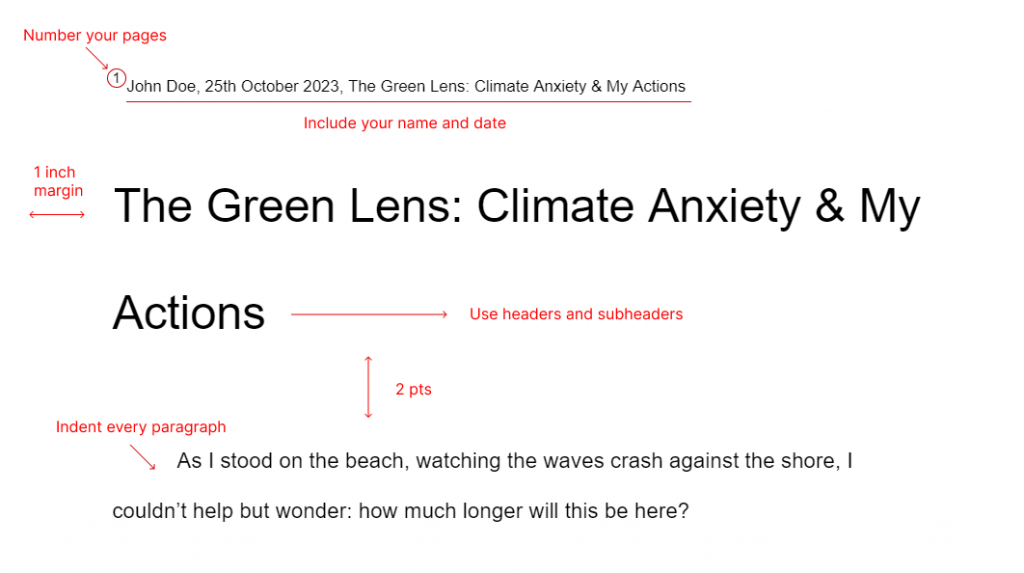Applying to college can feel like a herculean task, but one key detail that often gets overlooked is your college essay format. This isn’t just about neatness; the structure of your essay is a powerful medium that can spotlight your unique personality and life experiences, offering a compelling narrative to the admissions committee.
It’s not just about what you’re saying, it’s about how you’re saying it.
From picking the right typeface and size, to double-spacing and getting those margins just right, every little detail counts. We’re here to walk you through the process of getting your college essay formatted and in order, making sure your application is head and shoulders above the rest.
One Application For All Colleges!!
The Common App is a one-stop digital hub for college applications. You can apply to over 1,000 colleges globally with just one application. It also offers resources for financial aid, scholarships, and advice from experts. Your main essay is the heart of the Common App, reviewed by all your potential schools.
Many colleges using the Common App have their own essay prompts, known as “supplemental essays”. These help schools understand your academic interests and other unique traits. So, while the Common App simplifies applications, be ready to write extra essays for specific schools. Always check each school’s requirements on their admissions page or in the Common App.
Before you proceed, here’s the list of Common App essay prompts for 2023-2024 for you to consider:
- If you have a unique background, identity, interest, or talent that is crucial to your identity, please share your story.
- Share an instance where you faced a significant challenge or failure and what you learned from it.
- Discuss a time when you questioned or challenged a belief or idea, what led to it, and the result.
- Talk about an act of kindness that surprised you and made you feel grateful, and how it influenced or inspired you.
- Describe an achievement, event, or realization that led to personal growth and new insights about yourself or others.
- Explain a topic or idea that fascinates you so much that you lose track of time, why it interests you, and where you go to learn more about it.
- Write an essay on any topic of your choice. It could be a previously written piece, a response to another prompt, or a topic of your own choosing.
College Essay Format

A well-formatted college essay can make a world of difference in the impression you leave on the admissions committee. Here are some key elements to keep in mind when formatting your college essay:
Related: Top 6 Reasons Why You Should Apply To College
Choose the Right Font and Size
Go for a standard, easy-to-read font like Times New Roman or Arial. The font size should ideally be 12 points. This ensures that your essay is readable and looks professional. A well-chosen font can make a big difference in getting your message across.
Use Double Spacing
Double spacing between lines helps readability by preventing the text from looking squished on the page. It also gives space for reviewers to jot down notes or comments directly on the essay if they read a paper copy of your essay.
Set Margins Correctly
Standard margins are typically 1 inch on all sides. This gives a clean, uncluttered look and ensures your text doesn’t look squeezed onto the page.
Indent the First Line of Each Paragraph
Indenting the first line of each paragraph helps to visually distinguish between paragraphs, making your essay easier to read and follow.
Use Headers and Subheaders
If your essay is long, consider using headers and subheaders to break up the text into manageable chunks. This helps guide the reader through your essay and makes it easier to understand.
Number Your Pages
Page numbers help keep your essay organized and ensure that none of the pages get lost or misplaced. They’re particularly handy if your essay is printed out.
Include Your Name, Date & Title in Header
Yes, it’s a good practice to include a header on each page of your essay with your name, the date, and the title of your essay. This ensures that all pages of your essay remain together if they are printed out and somehow become separated. It also helps identify your work on each page.
Proofread for Errors
Before you submit your essay, proofread it thoroughly for any spelling, grammar, or punctuation errors. Even minor mistakes can distract from the quality of your content. Consider using a tool like Microsoft Word’s spell check feature or Grammarly to help catch any errors you might have missed.
Follow Specific Instructions
If the admissions department has provided specific formatting instructions, be sure to follow them exactly. This shows that you pay attention to detail and respect the guidelines set by the institution.
Related: How Many Colleges Should You Apply To?
College Essay Outline Template
Title: [Your Title Here]
Introduction:
– Engaging Opening: Start with a compelling anecdote, quote, or personal story related to the topic.
– Context: Provide some context or background information about the topic.
– Thesis Statement: Clearly state the main idea of your essay and your unique perspective on the topic.
Body Paragraph 1:
– Topic Sentence: State the main point of this paragraph.
– Evidence: Provide specific evidence or examples to support your point.
– Analysis: Analyze your evidence and explain how it supports your point and connects to your thesis.
– Transition: Use a transition sentence to smoothly lead into the next paragraph.
Body Paragraph 2:
– Topic Sentence: State the main point of this paragraph.
– Evidence: Provide specific evidence or examples to support your point.
– Analysis: Analyze your evidence and explain how it supports your point and connects to your thesis.
– Transition: Use a transition sentence to smoothly lead into the next paragraph.
Body Paragraph 3:
– Topic Sentence: State the main point of this paragraph.
– Evidence: Provide specific evidence or examples to support your point.
– Analysis: Analyze your evidence and explain how it supports your point and connects to your thesis.
Conclusion:
– Restatement of Thesis: Restate your thesis in a new way, emphasizing its importance and relevance.
– Summary of Main Points: Briefly summarize the main points you made in your body paragraphs.
– Closing Thoughts: End with a thought-provoking statement, question, or call-to-action that leaves a lasting impression on the reader.
Postscript:
– Reflection: Reflect on what you learned from writing this essay and how it has helped you grow as a person and a writer.
Craft an Engaging Title
The title should be catchy and relevant to your essay. It’s the first thing the admissions committee will see, so make it count. It should give a hint about your essay’s topic or theme without giving too much away.
Do: “The Green Lens: Climate Anxiety & My Actions”
Don’t: “Essay 1”
Design a Professional Essay Header
The header should include your name, date, and the title of your essay. This helps identify your essay in case it gets separated from your application.
Do: “John Doe, October 25, 2023, The Green Lens: Climate Anxiety & My Actions”
Don’t: “JD, Essay”
Create a Compelling Hook
The hook is the first sentence or two of your essay. It should grab the reader’s attention and make them want to read more. This could be a surprising fact, a thought-provoking question, or a brief anecdote related to your topic.
Do: “As I stood on the beach, watching the waves crash against the shore, I couldn’t help but wonder: how much longer will this be here?”
Don’t: “This essay is about climate anxiety.”
NOTE:
In an essay, a hook and a thesis statement serve different purposes and are typically found in different parts of the introduction.
- The Hook: This is usually the first sentence (or sentences) of your essay. Its purpose is to grab the reader’s attention and make them want to read more. It could be a compelling question, a surprising fact, a bold statement, or an interesting anecdote.
- The Thesis Statement: This comes later in the introduction, after the hook. It’s a clear, concise statement that presents the main argument or focus of your essay. It sets the tone for the rest of your paper and guides your writing. It should answer the question: “What is this essay about?”
Related: The College Application Process Explained!
Formulate a Strong Thesis Statement
Your thesis statement is a clear, concise statement of your main argument or focus. It should be specific and directly answer the question or prompt given. The thesis statement guides the content of the rest of your essay.
Do: “In this essay, I’m going to dive into my personal journey with climate anxiety and how it’s shaped my actions toward environmental conservation.”
Don’t: “I’m going to write about climate change.”
Develop a Thorough Body
The body of your essay is where you present your arguments and evidence. Each paragraph should focus on one main idea that supports your thesis.
Do: Use each paragraph to discuss a different aspect of the issue, such as the causes of climate anxiety, the effects on personal actions, and potential solutions.
Don’t: Jump from one idea to another without clear organization.
HEADS UP: Remember, clarity and coherence are key in writing an effective college essay. Each part should flow naturally into the next, and your ideas should be presented in a logical manner.
- Topic Sentence: Each paragraph should start with a topic sentence that introduces the main idea of that paragraph.
- Do: “One major cause of climate anxiety is the increasing frequency of natural disasters.”
- Don’t: “Let’s talk about natural disasters.”
- Supporting Details: After the topic sentence, provide supporting details such as facts, quotes, examples, or personal experiences that back up your main idea.
- Do: Provide specific facts, statistics, and examples to support your main idea.
- Don’t: Make vague or unsupported statements.
- Transition: Use transition words or phrases at the end of each paragraph to smoothly lead the reader to the next idea.
- Do: “Having discussed the causes of climate anxiety, I want to talk about its impact on me and my everyday life..”
- Don’t: Suddenly start discussing a new idea without a smooth transition.
Related: ‘Why Do YOU Deserve a Scholarship?’ Tips to Tackle this Essay Prompt
Conclude with a Thought-Provoking Conclusion
The conclusion wraps up your essay by summarizing your main points and restating your thesis in a new way. It should leave the reader with something to think about.
Do: Summarize your main points and restate your thesis in a new way.
Don’t: Introduce new information or arguments.
- Summary: Briefly recap the main points you made in your essay. This helps reinforce your arguments and reminds the reader of what they’ve just read.
- Do: Briefly recap the main points you made in your essay.
- Don’t: Simply copy and paste sentences from your essay.
- Closing Statement: Your closing statement should leave a lasting impression on the reader. This could be a call to action, a thought-provoking question, or a prediction about the future based on what you’ve discussed in your essay.
- Do: “Unless we take immediate action to combat climate change, we risk losing our planet as we know it.”
- Don’t: End your essay abruptly without a closing statement.
College Essay Ideas: What Should I Write My College Essay About

Choosing a topic for your college essay can often be the most challenging part of the application process. You want to select a subject that is meaningful to you and can showcase your unique qualities and experiences.
From personal challenges to passions and interests, these exercises will guide you in digging deep and discovering the stories that are most important to you. Let’s dive in and explore some college essay ideas that could make your application stand out.
The Values Exercise
This exercise involves identifying your core values and how they have influenced your life. For example, if one of your core values is “compassion,” you might write about a time when you volunteered at a local shelter, and how this experience deepened your understanding of empathy and kindness.
The Essence Objects Exercise
This exercise asks you to think about objects that represent essential aspects of your identity. For example, a paintbrush might represent your passion for art, a family heirloom might symbolize your connection to your heritage, or a medal might represent your dedication to athletics.
Related: 5 Strategies to Pick the Right College Based on Your Skill Set
The ‘Everything I Want Colleges to Know About Me’ Exercise
In this exercise, you make a list of things that you want colleges to know about you that might not be evident from the rest of your application. For example, you might include your love for cooking, your ability to solve complex math problems, or your knack for making people laugh.
WOW!!: Check out some of the best essays by high school seniors about “money” which were featured in The New York Times.
Personal Challenges or Experiences
Reflect on challenges you’ve faced, how they’ve affected you, and what you’ve learned from them. This could be a unique extracurricular activity, an interest that contrasts heavily with your profile, or a seemingly insignificant moment that speaks to larger themes in your life.
Passions and Interests
Discuss something you’re deeply passionate about or interested in. This could be an academic subject (like history or biology), a hobby (like photography or hiking), or even a cause that’s important to you (like environmental conservation or social justice).
College Essay Tips
A well-written and thoughtful essay—reflecting who you are and what you believe—can go a long way to separating your application from the slew of forgettable ones that admissions officers read.
Start Early
Instead of starting your essay the night before it’s due, begin at least a week in advance. Starting early gives you the luxury of time to brainstorm, research, write, and revise without feeling rushed. It allows you to approach the task with a clear mind and a relaxed attitude, which can significantly improve the quality of your work.
Grab the Reader From the Start
Your opening sentence or paragraph should act like a hook, immediately capturing the reader’s attention and drawing them into your essay. Whether it’s an intriguing anecdote, a surprising fact, or a provocative question, make sure your start is compelling enough to engage your reader from the get-go.
Instead of starting your essay with a generic statement like “This essay will discuss…”, try something more engaging like “Have you ever wondered why the sky is blue?”
Use Vivid, Specific Details
Breathe life into your essay by incorporating vivid descriptions and sensory details. Instead of merely telling your story, show it through concrete examples and rich imagery. This not only makes your writing more engaging but also helps your reader visualize and connect with your experiences.
Instead of saying “I love playing basketball”, you could say “I love the feeling of the ball in my hands, the sound of sneakers squeaking on the court, and the thrill of making a three-pointer.”
Be Genuine
Authenticity is key in personal writing. Let your true personality and voice shine through in your essay. It should provide a personal context that communicates your values, qualities, experiences, and perspectives. This authenticity sets you apart from other students and makes you more memorable to admissions officers.
Instead of trying to impress the reader with grandiose statements or achievements, be honest about your experiences and feelings. For example, you could write about how volunteering at a local shelter changed your perspective on homelessness.
Be Unique, But Not Bizarre
While it’s important to stand out from the crowd, avoid resorting to shock tactics or trying too hard to be different. The best way to be unique is simply by being yourself and presenting your genuine thoughts and experiences. Remember, authenticity is more appealing than eccentricity.
Instead of writing an essay about a common topic like your favorite book or movie, try writing about something unique to you, like your family’s tradition of celebrating birthdays with a special soup.
Avoid Clichés and Platitudes
Clichés and platitudes are overused and lack originality. They can make your essay sound uninspired and dull. Instead of relying on these tired phrases, strive to express your thoughts in fresh and unique ways that reflect your individual perspective.
Instead of using clichés like “Every cloud has a silver lining”, try to express your thoughts in a more original way. For example, you could say “Even in difficult times, there are always opportunities for growth and learning.”
Read It Aloud
Reading your essay out loud is a great way to catch errors and awkward phrasing that you might overlook when reading silently. It can also help you ensure that your writing flows smoothly and naturally.
Related: Preparing for College? 13 Tips for a Successful Transition
Keep the Focus Narrow
Rather than trying to cover multiple topics or ideas in one essay, concentrate on a single theme or idea. This allows you to delve deeper into that topic and provide a more detailed and insightful discussion. A focused essay is often more compelling than one that tries to cover too much ground.
Instead of trying to cover all aspects of your life in one essay, focus on one specific experience or theme. For example, you could write about how moving to a new city taught you the importance of adaptability.
Do Your Best
The format of your college essay plays a big part in how your application is seen. It isn’t just about having killer ideas or a captivating story; it’s also about presenting those ideas in a clear, professional way.
By sticking to these guidelines on font choice, spacing, margins, indentation, headers, page numbers, and proofreading, you can make sure your essay is not only engaging but also easy on the eyes.
Get started early, keep your focus narrow, and most importantly, let your personality shine through. With these tips in your back pocket, you’re well on your way to nailing your college application.
Frequently Asked Questions
The length of a college essay can vary based on the specific guidelines set by the college or university. Common App essays are usually capped at 650 words, while supplemental essays can range anywhere from 100 to 500 words or more. It’s crucial to stick to the application instructions provided by the school, as they may have unique requirements for essay length.
There are no set rules for structuring a college application essay, but you should carefully plan and outline to ensure your essay flows smoothly and logically. Typical structural choices include a series of vignettes with a common theme or a single story that demonstrates your positive qualities.
You can start your essay with a shocking, unexpected, or amusing fact about the topic you’re covering. This grabs the reader’s attention and makes them want to read further. You can also ask a question in your essay opening, directly inviting the reader to interact with your work.
A strong conclusion should tie together the essay’s main points, show why your argument matters, and leave the reader with a strong impression8. You can restate your thesis, review your main points, and show why it matters.
The “Why this college?” essay should demonstrate—through specific details and examples—why you’re a great match for a particular school. It’s important to thoroughly research the college, connect what you’ve learned through your research to yourself, and then outline and write the essay.



